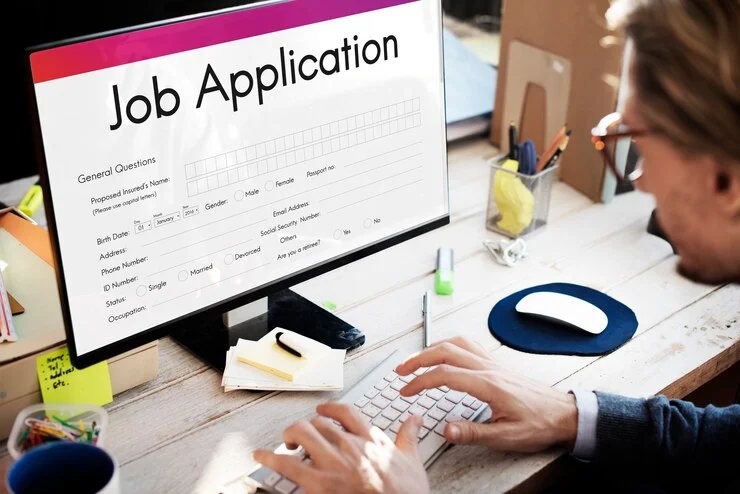The job market is more competitive than ever, and making a lasting impression with your job application is essential. Employers sift through dozens, if not hundreds, of resumes daily. To stand out, your application needs to capture attention immediately, leaving no doubt about your qualifications, motivation, and fit for the role.
This article will guide you through practical steps to enhance your job application. From tailoring your resume to understanding the role of cover letters, we’ll provide tips that help you craft an application that catches the eye of hiring managers and leaves a positive, lasting impression.
Tailor Your Resume to the Job
One of the most crucial steps in making a lasting impression is ensuring your resume is customized for the job you’re applying for. Employers are looking for candidates who can demonstrate that they understand the role and possess the skills necessary to succeed. A generic resume won’t cut it in today’s competitive job market.
Highlight Relevant Experience
When you tailor your resume, focus on the experience and skills most relevant to the job. If you’re applying for a marketing position, highlight your work in digital marketing campaigns or brand management. If the role emphasizes customer service, describe your experience in that area. Show the employer that you’re the solution to their challenges.
Use Keywords from the Job Description
Many companies use applicant tracking systems (ATS) to screen resumes. These systems search for keywords from the job description to identify the most qualified applicants. Using keywords from the job posting will increase the chances of your resume getting noticed.
Ensure that the key qualifications, skills, and experiences in the job posting are mirrored in your resume. But don’t just copy-paste. Be sure to integrate the keywords naturally into your resume’s content.
Write a Compelling Cover Letter
While some may argue that cover letters are outdated, they still play an essential role in making a lasting impression. A cover letter allows you to convey your personality, enthusiasm for the position, and the specific reasons you’re a great fit for the job.
A good cover letter complements your resume by explaining why you’re interested in the company and how your skills align with their needs. It’s your chance to show that you’ve done your research and are genuinely invested in the opportunity.
Why Cover Letters Matter
A well-written cover letter can decide between two equally qualified candidates. It allows hiring managers to see beyond the qualifications listed on your resume and understand why you’re passionate about the role. With so many applications flooding in, a personalized cover letter can make all the difference in getting your resume noticed.
One way to ensure your cover letter stands out is by using high-quality resources like Zety’s cover letter templates. These templates offer structure and style suggestions that allow you to highlight your strengths clearly and professionally, all while maintaining a personal touch that showcases your enthusiasm.
Focus on Your Achievements, Not Just Duties
Job applicants often make the mistake of listing job duties in their resumes, which can make them sound generic. Instead, focus on your achievements in each role. Employers are looking for results, not just tasks completed.
Use Quantifiable Results
When possible, use numbers to back up your achievements. For example, rather than saying “Responsible for managing a team,” say “Led a team of 10 to achieve a 20% increase in sales over six months.” Numbers provide context and make your accomplishments more tangible and impressive.
Quantifying results gives hiring managers a clear sense of the impact you can have. It shows that you’re focused on outcomes and can deliver measurable success in your role.
Be Clear and Concise
In today’s fast-paced world, hiring managers don’t have the time to read lengthy applications. Keep your job application concise, focusing on the most important and relevant information. A resume should be no longer than one or two pages, and a cover letter should be no longer than one page.
Clarity is Key
A cluttered or confusing resume will make it harder for employers to see your value. Use clear, easy-to-read fonts, organized sections, and bullet points to break up information. Ensure your resume is scannable, as hiring managers often skim through resumes quickly.
Additionally, avoid jargon or overly complicated language. Be straightforward, and focus on making your points clear. Simple, direct communication shows professionalism and respect for the reader’s time.
Show Enthusiasm and Cultural Fit
Employers don’t just hire based on qualifications—they want candidates who will thrive within their company culture. Show enthusiasm for the role and the company. This can be conveyed through your cover letter, but your resume can also reflect this.
Research the Company
Before applying, research the company to understand its values, goals, and work environment. Tailor your application to reflect how you align with their culture. If you’re applying for a startup, you might emphasize your adaptability and eagerness to contribute to the company’s growth. If the company strongly focuses on work-life balance, mention how you value that balance.
Understanding and appreciating the company’s values will demonstrate that you’ve done your homework and are genuinely interested in the role.
Double-Check for Errors
One of the quickest ways to ruin a strong application is submitting something riddled with errors. Spelling and grammar mistakes signal to hiring managers that you may lack attention to detail. This could make them question your professionalism or commitment to the application process.
Proofread and Edit
Always take the time to proofread your job application before sending it out. If possible, ask a friend or colleague to review it as well. A fresh set of eyes can often catch mistakes you might have missed.
Additionally, read through your resume and cover letter to ensure that the formatting is consistent and the language flows smoothly. Small details like these can greatly affect how your application is perceived.
Follow Up
After submitting your application, it’s essential to follow up. A polite follow-up email shows that you’re genuinely interested in the position and allows you to reiterate your enthusiasm.
Keep it Professional
Your follow-up email should be brief and to the point. Start by thanking the employer for considering your application and expressing your continued interest in the role. You can also mention any new information that might be relevant or highlight a specific achievement that you didn’t include in your original application.
Be sure to send your follow-up email at the right time—typically about one to two weeks after submitting your application. Don’t bombard the employer with multiple follow-ups; this could be pushy. A single, thoughtful follow-up is usually sufficient.
Conclusion
Making a lasting impression with your job application requires more than just sending in a resume. It involves crafting a well-tailored application highlighting your skills, achievements, and enthusiasm for the position. With careful attention to detail—perfecting your resume, writing a compelling cover letter, or following up appropriately—you can set yourself apart from the competition.







